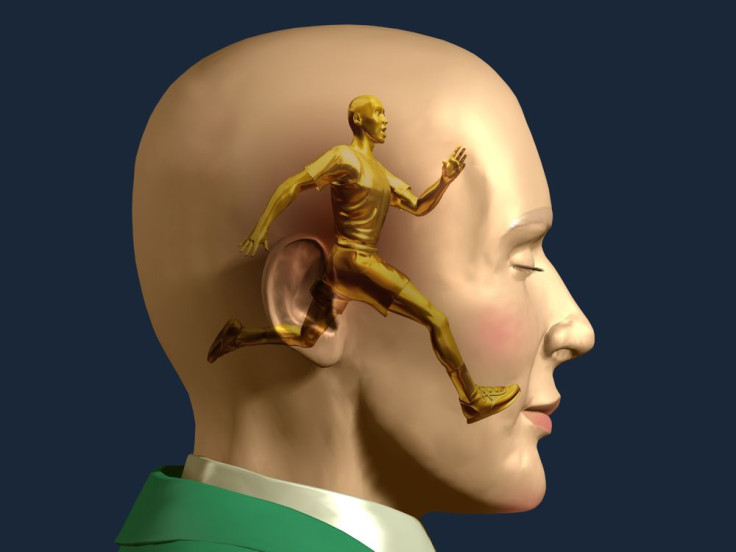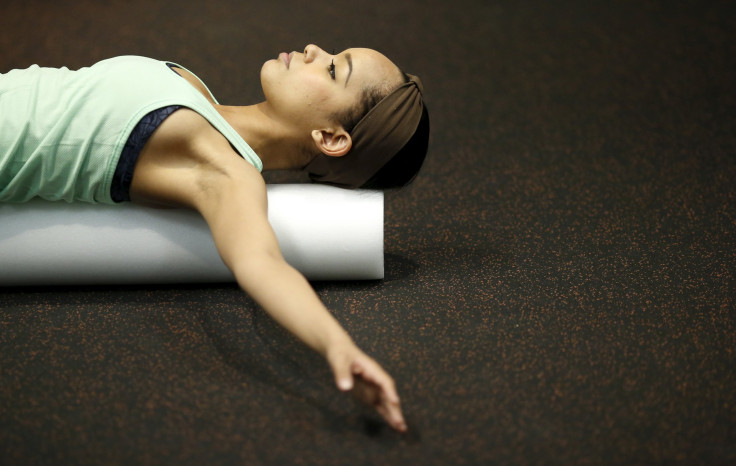Trying To Prevent Dementia? 7 Ways You Can Age-Proof Your Brain, According To Science

If you have a relative with Alzheimer’s, you know first-hand how terrible that disease can be, and so it is more than understandable you would prefer to avoid that fate for yourself. While no one knows what’s ahead, there are ways you can age-proof your brain. With a little bit of luck, then, you may be able to retain your mental abilities until death (or as long as humanly possible). After all, dementia is not a natural or inevitable part of aging.
Even if the scientific methods below are not 100 percent guaranteed, you will know, at the very least, that you are doing all you can to thwart one of the saddest plights in life. Even more, you will be living a darn healthy lifestyle.
If nothing else, please remember just this one thing — healthy is the better road to walk not because it is morally superior or less expensive or better for your country’s health care system (though it may be all of those things). No, a healthy life is a happier life for the most plain (and dare we say selfish) reason of all — it just feels good. Climbing stairs won’t make you feel as winded, you won’t get depressed as often, you will feel more comfortable moving and walking and dancing and enjoying yourself compared to if you live a less healthy lifestyle.
So let’s begin:
Never Underestimate Exercise
Not only does exercise reduce your risk of depression, the more you exercise the more you reduce your risk of developing dementia. Physically active people tend to maintain better cognition and memory than inactive people; according to Dr. Arthur Kramer, a professor and director of the Beckman Institute, as we age, our brain networks become less well connected but exercise increases connectivity. In fact, Kramer’s work suggests high exercise levels might reduce your risk of Alzheimer’s by 30 to 40 percent when compared to minimal exercisers.
Essentially, exercise not only improves vascular function throughout the body but also in the brain, while also increasing the size of the hippocampus. Since this part of the brain is key to memory formation, reversing the natural shrinking process that occurs over time by exercising, you might naturally improve your chances of aging gracefully. Various studies, including those mentioned here, point to weight-training as particularly helpful, especially for women.
And hey: Exercise is first on this list for a reason. If you do nothing else, get out there and move.

Friends with (Cognitive) Benefits…
…is how these University of Michigan researchers dubbed their 2010 study showing how a simple and friendly conversation with people improved participants’ abilities to solve problems. By comparison, the researchers discovered discussions with a competitive edge had no cognitive benefits. (Absolutely nada. Zip. Go home, you need a break if you’re getting all crazy and cutthroat again.) Previous research from the same team found social interaction with a friend may be comparable to playing solving a crossword puzzle, in terms of boosting your working memory and your ability to concentrate.
Plenty of studies come to similar conclusions, with one 15 year study showing that the support and inspiration derived from multiple social networks increased cognitive health, lowering dementia risk in older Swedes. It would seem, then, that you should never invite all your friends to the same party. Keep your social circles separate for maximum stimulation and brain health.

Yes, It's True: Eating Matters
Choice, choice, choice, choice, choice. Every day, generally no less than three times a day you choose to put food into your mouth. Why not select the foods that will help not hurt your chances of aging well? It probably wouldn’t hurt to know that healthy eating is delicious eating.
The simplest way to go is to follow the new MIND Diet, a Frankenstein hybrid created from the best parts of diets shown to protect against dementia. The diet is clear and easy to follow and lowered the risk of Alzheimer’s by more than half among the study participants who followed it faithfully. Yet, it also helped protect against dementia in those who cheated (so there).
For the minimalists, who can’t stand to follow a whole series of guidelines, try these three simple diet rules. Whenever possible, add in antioxidant-rich foods, such as blueberries, broccoli, carrots, kale, soybeans, and grapes. At least once a week, swap your portion of meat or dairy products for a serving of fish, rich in omega-3 fatty acids — salmon, mackerel, anchovies, sardines, and others listed here. Finally, add spice to your life. Black pepper, ginger, cinnamon, oregano, basil, parsley, and vanilla are high in antioxidants, while the active ingredient in turmeric may protect directly against dementia.

Purposeful Living Is Strong Living
Strangely, a Rush University study of older adults published in the Archives of General Psychiatry found evidence that having meaning and direction promotes cognitive health — even in cases where a person has already developed plaques and tangles, the signature brain changes in people with Alzheimer’s. In fact, the participants in the study with the highest sense of purpose were about 2.4 times more likely to remain free of Alzheimer's over the next seven years (the range of the study) than people with a lower sense of purpose.
What did the participants describe as their purpose? Some of the reasons that helped these aging adults face their day were family, religion, exercise, and music. Compose the symphony you dreamed of before the kids came along, or take those hikes through the beautiful and still woods.
Let’s Play Games
Possibly the saddest day ever for the people behind Lumosity, which charges customers a monthly fee for scientifically designed brain-training games, was the day Florida State University came to town. Researchers at FSU randomly assigned participants to play Portal 2 (action puzzle games) or Lumosity for eight hours. All the participants were pre- and post-tested on problem solving, spatial skills, and persistence. While Lumosity players showed no gains on any of these measures, Portal 2 players improved their scores on all three constructs, while showing significant gains on spatial tests.
In defense of Lumosity, one study is not enough to definitively make or prove this point. However, this one study reminds us that playing any game may be beneficial to our brains.

Sometimes You Need a Little Help
An older house has rusty pipes and the boiler is a little tired and some of the wiring may be shot and it simply does not run as well as a young house. As we get older, our internal machinery may not work as efficiently as it once did and so we may not absorb as many nutrients from our food. For this reason, it may be necessary to take supplements so as not to risk becoming deficient in any key nutrients or vitamins. In particular, vitamin B12 may be key to our brain health, a team of Rush University researchers discovered. Older adults with the lowest levels of vitamin B12 had smaller brains and even scored lowest on tests measuring thinking, reasoning and memory.
Yikes! Pop a multi-vitamin, dude.

Experimenting Is Not Just For Kids
Enroll in a philosophy class, learn a language, take oboe lessons, practice your calligraphy, purchase the food for and follow a new recipe, attend a workshop in flamenco dancing… do something or anything you’ve never done before and you will naturally improve your brain.
It’s truly that simple — new activities forge new connections in your brain and creating new pathways for your gray matter is what your brain wants and needs. Just as your heart beats and your stomach digests, well, your brain makes connections. And just as your belly would begin to growl awful loud if you didn’t add a little food now and then, your brain is hungry for the kind of new connections formed whenever you read, learn a new sport, or take a joy ride through an unknown neighborhood or town. By some miracle known as life, you are here participating in the earth experience. Enjoy the many facets of this existence as best you can and your brain should stay present for the entire trip, even the later years.
Finally, for a solid overview of aging and dementia risk, watch this not-so-short YouTube video featuring Dr. Claudia H. Kawas, a professor of Neurobiology & Behavior and Neurology at the UC Irvine. Worth it, we say, and entertaining:
Published by Medicaldaily.com



























